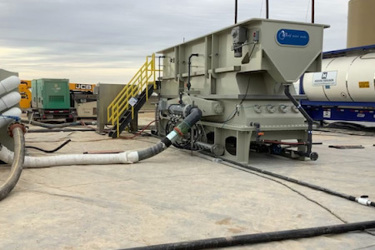How Advanced Biological Technologies Overcome Complex Wastewater Treatment Challenges In The Oil And Gas Sector
By Scott Jay, Vice President Industrial Sales, World Water Works

In the oil, gas, and petrochemical industries, wastewater treatment poses formidable challenges due to the presence of complex contaminants such as total organic carbon, oils, greases, and recalcitrant compounds. Regulatory pressure from the U.S. EPA further intensifies the need for robust, efficient, and sustainable treatment solutions. This white paper explores how advanced biological technologies — including MBBR, IFAS, SBR, and MBR systems — are transforming wastewater management in this sector.
Fixed-film systems like MBBR and IFAS deliver high treatment stability by supporting dense biomass populations, ideal for tackling difficult-to-degrade pollutants. SBRs offer the flexibility needed to manage variable flows, while MBRs provide high-quality effluent through membrane filtration, supporting both discharge compliance and water reuse. Dissolved air flotation (DAF) units and bioaugmentation further enhance treatment performance by targeting oil, grease, and persistent organics.
Integrated treatment solutions, which combine multiple technologies, are emerging as a comprehensive strategy to meet industry-specific demands. These systems boost energy efficiency, reduce chemical usage, and cut operational costs — all while supporting greater resilience against production fluctuations. Importantly, they enable water reuse and resource recovery, aligning operational efficiency with sustainability goals.
As the sector confronts growing regulatory, environmental, and operational pressures, embracing advanced biological treatment is not just a compliance measure — it’s a strategic imperative for long-term viability.
Get unlimited access to:
Enter your credentials below to log in. Not yet a member of Water Online? Subscribe today.
